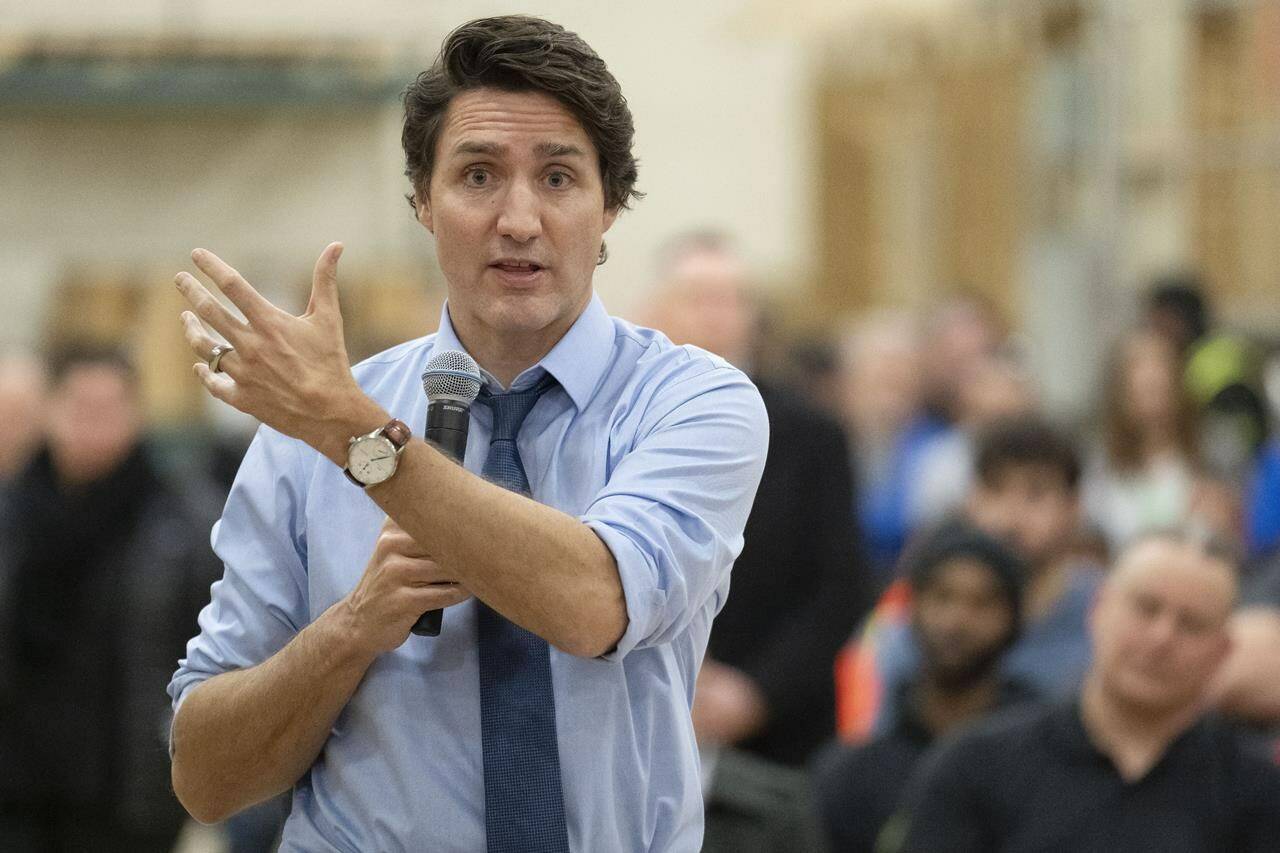Members of Parliament who put a political spin on foreign election interference are helping China undermine Canadians’ confidence in their democracy, says Prime Minister Justin Trudeau.
Playing “political games” to get a partisan advantage will undermine people’s trust in their institutions, and will only assist the efforts of countries like Russia and China that attempt to make democracies unstable, he said at a news conference in the Greater Toronto Area on Wednesday.
“I think where we should be careful as responsible leaders, and in dealing with this seriously, is not falling into some of the political partisan traps that are out there right now,” Trudeau told reporters.
He said Canadians must have trust in the electoral process, regardless of which political party is in power, and parties must work together on the issue.
“It’s not about one party versus another,” he said.
The Conservatives have criticized the Liberals for their handling of possible foreign interference in federal elections, saying the government has left the public in the dark about allegations that have recently emerged in media reports.
Last week, the Globe and Mail newspaper reported that China worked in the last federal election to defeat Conservative politicians in several ridings that it considered unfriendly to Beijing, and to help ensure a Liberal minority government.
A House of Commons committee agreed on Tuesday to study possible foreign interference in the 2021 election, expanding the scope of a study already underway on the 2019 election. The committee is set to summon cabinet ministers and national security agencies to testify for a second time.
Trudeau said he is “very pleased” about the committee’s decision to study the issue further.
“Canadians can and should continue to have faith in their institutions around this, and they need to know that everyone is taking this seriously,” he said.
A non-partisan panel of top public servants — including the top public servant, the national security advisor to the prime minister and the heads of the justice, public safety and foreign affairs departments — was stood up to tackle the issue ahead of the 2019 election, with a mandate to continue its work in subsequent elections.
It was tasked with alerting Canadians about foreign interference if it threatened their ability to have a free and fair election. But the panel members, who were to work with national security agencies under their departments’ mandates, made no such announcement in 2019 or 2021.
Documents obtained by The Canadian Press with an access-to-information request say that “considerable judgment” would go into deciding whether or not an event or series of events met the “threshold” for triggering an announcement.
Considerations in making that judgment would include the degree to which the incident or incidents undermined Canadians’ ability to have a free and fair election, their potential to “undermine the credibility of the election” and “the degree of confidence officials have in the intelligence or information.”
The details are described in an August 2021 Justice Department briefing document labelled as “secret.”
Information about potential interference could be received from security and intelligence agencies or other “sources,” says the document written in the lead-up to the 2021 election. It also says that the panel would instruct political parties on how to report allegations of such interference.
The Liberal party, Conservative party and NDP did not immediately respond to questions about whether they brought any allegations to the panel.
The document says that in the event that the head of a national security agency became aware of “interference in a general election,” they should inform the panel, consult with other agencies and “consider all options to effectively address the interference.”
The document says that “barring any overriding national security/public security reasons,” the agencies would inform the affected party of the interference, whether it was a candidate, a political party or Elections Canada.
The panel would then, on a consensus basis and with the option of consulting the Chief Electoral Officer, “evaluate incidents to determine if the threshold for informing the public has been met.”
If a public announcement about interference was deemed necessary, the briefing note says, the panel would inform the prime minister, major party leaders and Elections Canada and provide all of them with the same briefing information. Then, “immediately after,” it would issue the public statement.
Members of the panel are expected to testify at a future committee meeting.
—Mickey Djuric, The Canadian Press
RELATED: Parliamentary committee expanding its study on foreign election interference

